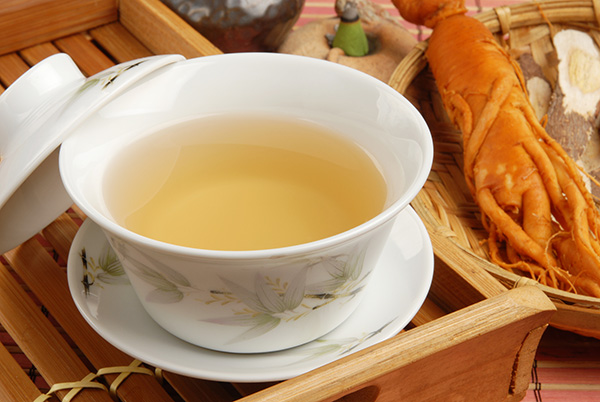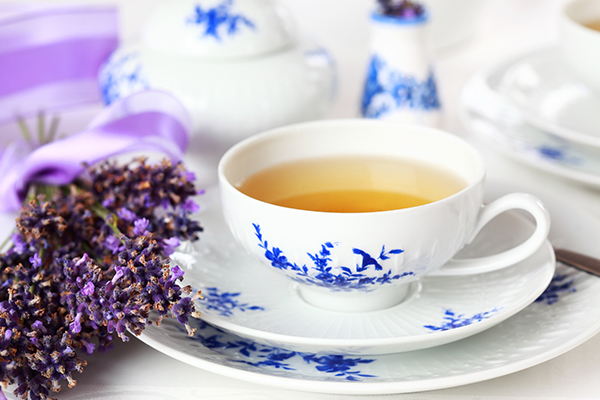Ginseng Tea: Benefits, Side Effects, and How to Make It
Ginseng tea is a traditional herbal drink brewed from the roots of the ginseng plant. Revered for centuries in East Asian cultures, it’s prized for its potential health benefits. It comes in different varieties, most commonly American Ginseng (Panax quinquefolius) and Asian Ginseng (Panax ginseng).

Potential Health Benefits of Ginseng Tea
Before we delve into the potential health benefits of ginseng tea, remember that while promising, many of the benefits need further study and substantiation.
May Boost Immunity
Ginseng tea is touted for its potential immune-boosting properties. Some studies suggest that ginseng can enhance the function of immune cells, which could help the body fight off infections or diseases more effectively.
Could Enhance Cognitive Function
Drinking ginseng tea might support cognitive function. Various studies have suggested a link between ginseng and improvements in brain functions like memory, behavior, and mood.
May Aid in Weight Management
Ginseng tea might help manage weight, thanks to its supposed ability to act as a natural appetite suppressant. Additionally, it’s thought to boost metabolism, potentially aiding in calorie burning.
Potential Support for Heart Health
Ginseng tea might offer benefits to heart health. Research indicates that it could help regulate blood pressure and reduce cholesterol levels, both crucial for maintaining a healthy heart.
Ginseng Tea Side Effects
While ginseng tea can offer potential health benefits, it’s also important to be aware of potential side effects.
May Cause Digestive Problems
In some individuals, ginseng tea might cause digestive problems, such as nausea, diarrhea, or stomach cramps. If you experience these symptoms, it’s advisable to reduce the amount or frequency of consumption.
Could Lead to Sleep Problems
Ginseng tea can sometimes interfere with sleep patterns, causing insomnia or restlessness in some people. If this happens, try consuming the tea earlier in the day.
May Cause Allergic Reactions
While rare, some individuals may have allergic reactions to ginseng tea, leading to symptoms such as skin rashes, difficulty breathing, or swelling.
Who Should Not Drink Ginseng Tea?
Ginseng tea should be avoided by pregnant or breastfeeding women, as its effects on these conditions are not well studied. Also, individuals with high blood pressure, heart conditions, or those taking blood thinners should consult a healthcare professional before adding ginseng tea to their diet.
How to Make Ginseng Tea
Before we brew our own ginseng tea, let’s understand that the strength and flavor of the tea can vary based on the quality of the ginseng used and the brewing process.
Making ginseng tea is easy:
- Take one teaspoon of ginseng root (dried or fresh) or a ginseng tea bag.
- Boil a cup of water in a kettle or a pot.
- Pour the boiling water over the ginseng, and let it steep for 5-10 minutes.
- Strain the tea (if using loose ginseng) into a cup.
- If desired, you can add honey or lemon to taste.
Final Thoughts
Ginseng tea could offer an array of potential health benefits. However, it’s crucial to be aware of the potential side effects and consult with a healthcare professional if needed. And, as always, follow the manufacturer’s guidelines if you’re using a branded product.
FAQ
What Does Ginseng Tea Taste Like?
Ginseng tea has a unique taste profile. It’s typically described as slightly sweet, earthy, and mildly bitter. Its flavor can vary based on the type of ginseng used and the brewing process.
How Often Can You Drink Ginseng Tea?
The frequency of drinking ginseng tea can vary, but generally, one to two cups per day is considered safe for most individuals. However, always refer to the manufacturer’s guidelines if you’re using a branded product, and consult with a healthcare professional if in doubt.
How Long Can You Drink Ginseng Tea Safely?
Generally, ginseng tea can be consumed safely for a few weeks to a few months. Long-term use is less well-studied, and may result in side effects. Always consult with a healthcare provider for guidance tailored to your specific health needs.






